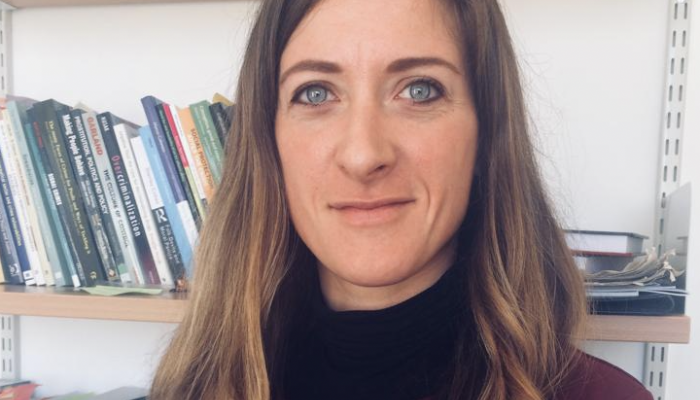Candidates to the ESC board, 2023: Anna Di Ronco, at-large board member

A European criminologist – this is how I genuinely see myself.
I was born and raised in Italy, the country where I went to school and university, but for the past 11 years I have also lived and worked in other two countries in Europe: Belgium and the UK. I graduated in Law from the University of Trento (Laurea Magistrale in Giurisprudenza) and then moved to Belgium – the beautiful Ghent – for my PhD in Criminology. After completing my PhD, I was hired at the University of Essex, UK, where I currently am Senior Lecturer in Criminology and Director of its Centre for Criminology. I have been a member of the European Society of Criminology since the start of my doctorate study in Ghent in 2012, and since then I have attended nine wonderful ESC Conferences.
My research is also very much European: it analyses the social control of incivilities (anti-social behaviour, nuisance, disorder) in European countries and cities, also in a comparative perspective. Progressively since the 1990s, many European countries and cities have adopted punitive measures against (vaguely defined) uncivil or disorderly behaviour. My research contributes comparative empirical evidence to the analysis of anti-incivility regulations in Europe, outlining the context-specific and cultural factors that shape such regulations and their enforcement; it also unveils the effects that the enforcement of anti-incivility regulations often has on already vulnerable and marginalised individuals and groups. Theoretically, my research contributes to the interdisciplinary literature on the governance of inner-city spaces, which stretches through critical and cultural criminology, socio-legal studies, human geography and urban studies. My new book with Bristol University Press (2023), Policing Environmental Protest: Power and Resistance in Pandemic Times, uses interdisciplinary insights to analyse recent policies and practices which in many European countries and beyond have limited the right to protest in inner-city spaces, while also focusing on (and giving visibility to) eco-justice activist practices of resistance.
My research on and with eco-justice movements dates back to 2017, when I started a research project addressing how silenced and criminalised eco-justice movements use social media to break the silence and expose their suffered criminalisation and harms. This project involved other colleagues, including a computational social scientist. The project and its innovative AI-assisted methodologies for data collection and analysis led to several publications, a follow-up grant, and also awarded me the ‘Outstanding Early Career Researcher Award’ for the Faculty of Social Sciences of the University of Essex in 2021.
During my career as an early career scholar (I am within 7 years from my PhD), I published several articles in top-notch criminology journals, two co-edited books (2 more are currently in preparation), one monograph, one co-authored bestselling criminology textbook (Criminology: A Sociological Introduction, 4th ed., Routledge), in addition to several chapters in edited books and volumes.
I gave numerous presentations and papers at conferences in Europe and beyond, and was also invited to give guest talks in many universities, including UNICAMP (Brazil), VUB and Ghent University (Belgium), the Universities of Bologna, Pisa, Trento and Sassari (Italy), BGU (Israel), the John Jay College of Criminal Justice (CUNY, US), the University of the Basque Country and the Complutense University of Madrid (Spain). As a visiting scholar, I visited the Ben-Gurion University of the Negev (2017), the Brussels Centre for Urban Studies (2019) and the Oñati International Institute for the Sociology of Law (2022). All this demonstrates the broad reach of my European and international network, which I eagerly reinforce and expand each year at the annual ESC Conferences. The ESC Conferences are, indeed, a great space for (broadly defined) criminologists to meet and share ideas – and also a wonderful opportunity to expand one’s network, start research collaborations, and catch up with colleagues and friends.
If elected as at-large Board member I promise to work hard to maintain the open, inclusive and interdisciplinary spirit of the ESC, which makes it so unique, also keeping the needs of early career criminologists at heart. As at-large Board member, I would also love to contribute to the existing ESC projects, including the Oral History Project, and promise to give new energy and impetus to the designing of new projects which the Society could promote in the future.
